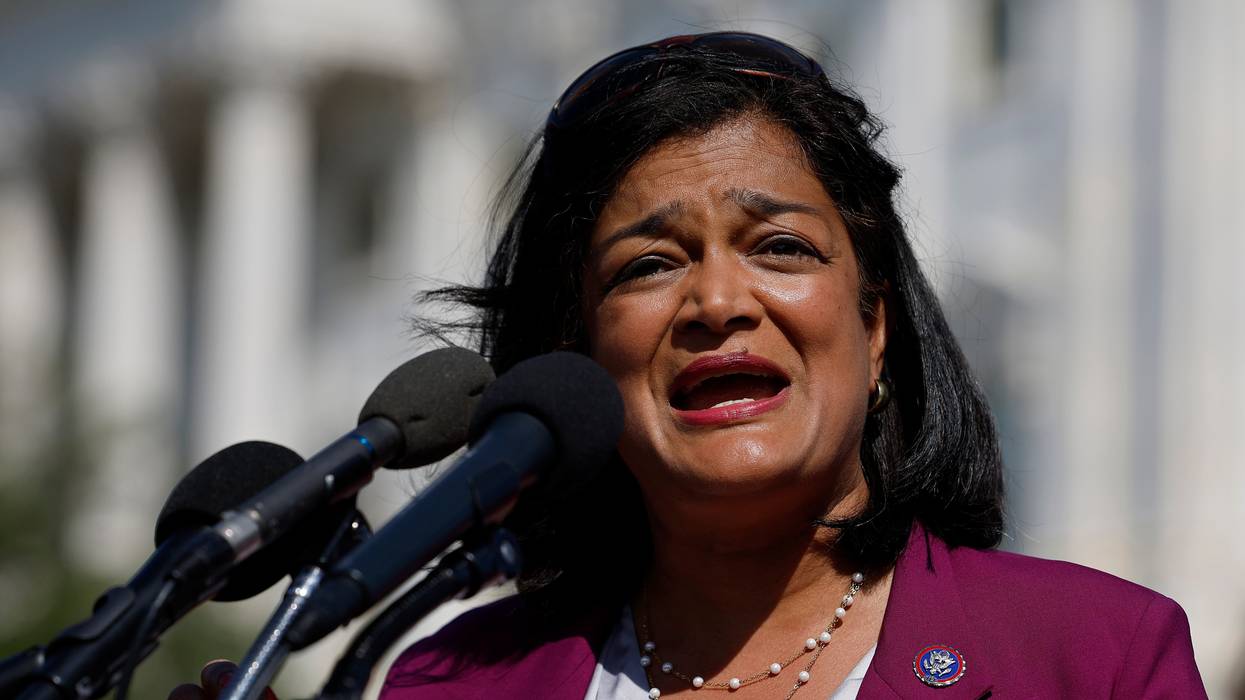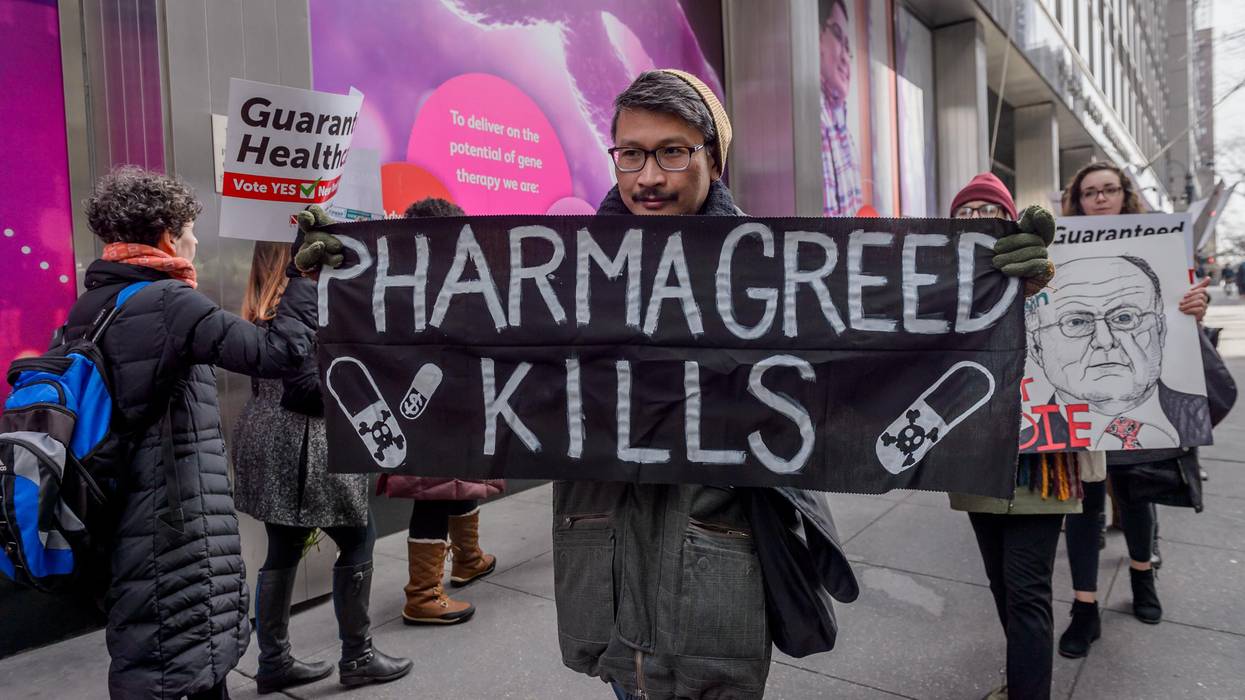Critics Say Biden Plan to Cut Drug Costs Too Friendly to Big Pharma
"Federal agencies have shown themselves reluctant to act against unreasonable prices, and this new proposal may give them permission to continue to do nothing," said one expert.
While welcoming the White House's willingness to tackle pharmaceutical companies' patent abuse and high prescription drug prices, progressive critics argued Thursday that U.S. President Joe Biden must do more to challenge Big Pharma's monopoly power.
The White House on Thursday announced "new actions to promote competition in healthcare and support lowering prescription drug costs for American families, including the release of a proposed framework for agencies on the exercise of march-in rights on taxpayer-funded drugs and other inventions."
Under the Bayh-Dole Act of 1980—legislation meant to promote the commercialization and public availability of government-funded inventions—federal agencies reserve the right to "march in" and authorize price-lowering generic alternatives to patented medications developed with public funding.
The federal government has never invoked march-in rights, which are staunchly opposed by the pharmaceutical and other industries and interests.
"American taxpayers pay more for research than any country in the world: Hundreds of billions of dollars on research relevant to developing new drugs through the [National Institutes of Health] and other agencies," White House domestic policy adviser Neera Tanden said at a Thursday press briefing, according to The Hill.
"But at the same time, pharmaceutical companies charge Americans two to three times—and sometimes even more than that—for the same drugs than what they can charge in other countries," she added.
The White House said Thursday that the Department of Commerce and Department of Health and Human Services "released a proposed framework for agencies on the exercise of march-in rights that specifies for the first time that price can be a factor in determining that a drug or other taxpayer-funded invention is not accessible to the public."
The issue of greedy pharmaceutical companies charging exorbitant prices for publicly funded drugs took center stage during the Covid-19 pandemic, when corporations reaped record profits selling vaccines and other treatments developed fully or partly with taxpayer money.
U.S. SenateHealth, Education, Labor, and Pensions (HELP) Committee Chair Bernie Sanders (I-Vt.)—a leading congressional critic of Big Pharma greed—called Thursday's announcement "a step forward in the right direction."
Sanders continued:
But, in my view, much more must be done. The American people are sick and tired of seeing hundreds of billions of their tax dollars going to the research and development of new treatments and cures only to end up paying, by far, the highest prices in the world for prescription drugs. In my view, the administration should reinstate and expand the reasonable pricing clause to require the pharmaceutical industry to charge affordable prices for new prescription drugs developed with taxpayer support. It should also move to substantially lower the price of the prostate cancer drug Xtandi by allowing companies to manufacture generic versions of this treatment. This is a drug that was invented with taxpayer dollars by scientists at UCLA and can be purchased in Canada for one-fifth [of] the U.S. price.
In March, patient advocates blasted the Biden administration's refusal to compel Pfizer to lower Xtandi's price, even though the lifesaving prostate cancer drug—which has a nearly $190,000 annual price tag—was developed completely with public funds.
Peter Maybarduk, director of the Access to Medicines program at the consumer advocacy group Public Citizen, said: "March-in can be, should be, a powerful tool to support fair pricing and access to publicly funded medicines, as President Biden importantly suggests. Unfortunately, the administration's march-in policy is far more limited than the statute allows."
"It should be quickly revised to recommend use of march-in wherever publicly funded medicines are unreasonably priced," he continued. "Where most drug prices already are egregious and force rationing, few drugs will seem 'extremely' priced by comparison. Federal agencies have shown themselves reluctant to act against unreasonable prices, and this new proposal may give them permission to continue to do nothing."
"Unfortunately, the administration's march-in policy is far more limited than the statute allows."
"The examples the announcement offers evade the main and important use case: Where drug corporations abuse their monopoly power to charge exorbitant prices, ignore the government contribution to [research and development], and charge Americans more than people in other countries," Maybarduk asserted.
"The final guidelines must be adjusted so they explicitly cover these scenarios and establish commonsense criteria for what constitutes an unreasonable price," he added. "Falling short risks doing nothing to lower the prices of taxpayer-funded medicines for patients, and instead perpetuating an unacceptable status quo. Americans have a right to expect not to be price gouged for medicines they paid for in the first place."



